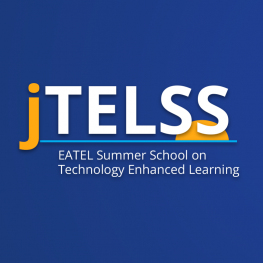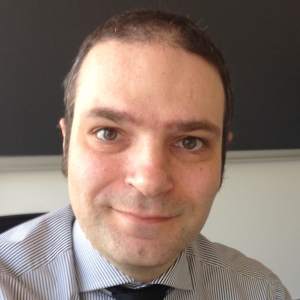Speakers
Christian Glahn
Zurich University of Applied Sciences, SwitzerlandRoland Klemke
Open University of The Netherlands, The Netherlands / TH Köln, GermanyNardie Fanchamps
Open University of the NetherlandsStart
18/05/2024 - 14:00
End
18/05/2024 - 17:30
Playful Computational Thinking with Robots
Saturday 18/05 14:00-17:30h
Workshop Space B
Needs Analysis
Despite recent advances in generative AI and its impact on higher education, “Calm Technology” (Weiser, 1994) has a similar despite less glamorous impact on daily lives. Today’s children grow-up with smart technologies ranging from AI-powered Assistants on Smartphones to tangible storytelling devices (e.g., Toniebox) to mixed media toys (e.g. LEGO Live). While European school curricula start to include programming already in primary schools, they are often focused on screen centric paradigms, which favours not all children equally and is not necessarily enabling children to take control of their increasingly screenless digitized world. Bridging these technologies into early education poses an open challenge for TEL research that integrates (a) technological development, (b) educational design and (c) immersive experience design.
Learning Objectives
The participants will experience and understand the educational application of interactive ready-made robots as a TEL tool for teaching computational thinking.
The participants will discuss and implement learning designs for open ended classroom experiences using interactive robots.
The participants will explore the concepts of immersive and playful learning activities using TEL-Tools.
The participants will reason on researching learning designs (LD), learning resources and tools.
Pre-activities
This workshop is self-contained and includes no pre-activities. The workshop requires sufficient space for activities involving a mobile robot with two groups.
Session Description
This workshop is implemented in three parts: In the first part the participants follow a short classroom session of “programming” using ready-made robots. This allows the participants to familiarize with the practices of using ready-made smart tools in learning experiences. In the second part the participants discuss the relation of computational thinking and the tools used. Based on these discussions, the underpinning educational design concepts of the initial activity are introduced with a focus on enabling immersive experiences. The final part addresses the empirical study of such educational designs. For this purpose, the participants will create own exercises or extend the initial one with respect to collecting experience related data. This allows the participants to reason practically on linking research questions to classroom ready learning designs using TEL applications. This workshop is sponsored by the CoTEDI project under the ERASMUS+ Programme.



